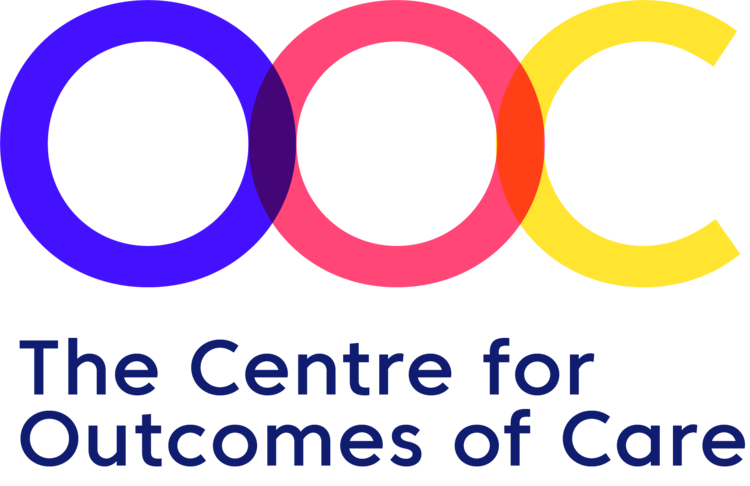What is the Child & Adolescent Needs & Strengths (CANS) Assessment?
A collaborative, universal assessment tool - for the whole person, the whole system and the whole care journey.
At the heart of the TCOM approach, and designed for universal use throughout children’s social care, the CANS assessment provides a comprehensive, integrated, whole-system framework for understanding and communicating individual needs, planning care, monitoring outcomes and drawing on robust, meaningful data to guide service responses at a population level.
The CANS transforms the role and process of assessment to play an integral part in decision-making, care-planning, monitoring of outcomes and service responses.
“Having a common framework means that all of us – from care teams to clinicians – understand the strengths and needs of the children we work with. It’s made a real difference in how we communicate and plan interventions.”
The CANS enables the whole system to understand the person in care, communicate their needs, agree shared goals and monitor what’s working in realtime.
The CANS measures a comprehensive range of Items, structured within key Domains. Items are designed and selected to be consistent with information required to inform decision-making across the full scope of practice and services, and are rated in way that directly informs actions in care planning.
Items, ratings and definitions are consistent with diagnostic criteria to ensure a coherent thread of information and reduce the need for unnecessary additional assessments prior to interventions or when securing placements/services.
“The CANS tool has shifted our focus from just managing risks to identifying and celebrating strengths. It’s helped us look at children holistically and not just through the lens of challenges. It has really improved our understanding of trauma and how it manifests in behaviours. The framework gives us a way to address these issues compassionately and effectively.”
A shared assessment ‘language’ that removes the complexities of multi-agency collaboration and ‘gets everyone on the same page’
The CANS provides a reliable, shared understanding of individual needs, strengths and goals – one that is compatible between services and with the requirements of practice, care planning, multi-agency intervention, outcome monitoring, service assessment and commissioning strategy.
The CANS is used by practitioners and support workers, social workers, clinicians and any other helpers in an individual’s world – providing the shared understanding that is so desperately needed to improve decision-making and partnership working, monitor and reliably communicate an individual’s progress in realtime.
“CANS has been a brilliant tool for bringing the team together. Psychologists, key workers, and managers are now on the same page, working collaboratively to develop care plans.”
The CANS provides meaningful, realtime, actionable data to drive decision-making and improvement at every level of the care system.
As well as immediately informing care planning at a practice level, use of the CANS assessment also provides the opportunity to gain ‘real-time’ service-level and system-level perspectives of needs, outcomes and trends across groups and populations, through the summing and analysis of data.
The reliable data drawn from CANS assessment has powerful impact at every level of the complex care system, and every single assessment contributes to our sector’s understanding of need, and of what works, where, when and for which children and young people.
“One of the biggest benefits is how measurable everything has become. We can track progress over time and celebrate even small victories, which is motivational for both staff and children.”
The powerful impact of CANS data at every level of the care system:
Practice Level
Level of care / placement determination and referrals
Care and treatment planning
Setting goals, establishing baselines and tracking individual progress
Recognising risks for early intervention and prevention
Management Level
Staff Caseload Management
Identifying Caseworker/Clinician, Program and Agency Strengths and Needs
Service Level
Identifying Service population patterns of needs and strengths
Setting service goals
Improving quality of service
Identifying what works for whom and adjusting processes for placements/services
Population Level
Forecasting of need for specific services
Impact assessment at population level
Sufficiency planning and service investment in response to actual population needs
“Using CANS data to create graphs and reports has made it so much easier to demonstrate progress to inspectors and stakeholders. It’s no longer just anecdotal evidence – we have something tangible to show”
What is the theoretical basis for the CANS?
The ‘communimetric’ approach to assessment was developed by Dr John Lyons, Professor of Public Health at the University of Kentucky, and has been used widely in the US since 2004. The communimetrics approach responds to the reality that the primary roles of assessment in human-serving systems must be measurement and communication to support effective, consensus-based decision-making. With this focus in mind, communimetrics restructure the process of assessment to more reliably and meaningfully measure needs, risks and strengths, and be integral to communication, collaboration and planning in the real world context of delivering and managing care.
While the theoretical approach may sound complex, the assessment tools are not. This universal, simple and intuitive format is not only empirically validated and reliable, it is well-liked by providers, practitioners, individuals and families in care systems internationally.



